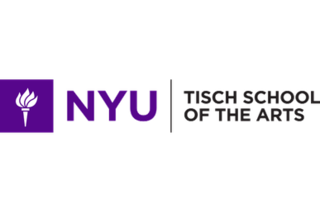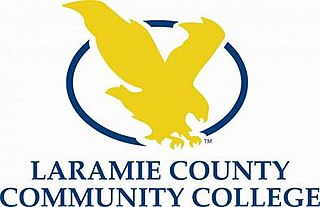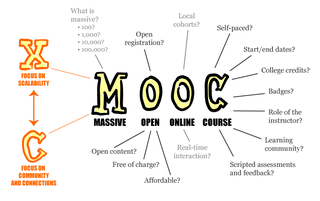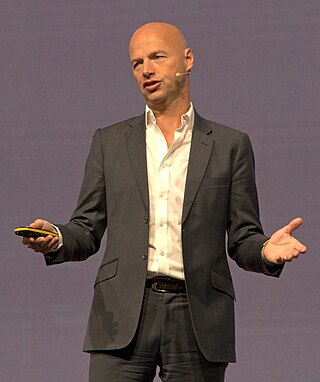Distance education, also known as distance learning, is the education of students who may not always be physically present at school, or where the learner and the teacher are separated in both time and distance. Traditionally, this usually involved correspondence courses wherein the student corresponded with the school via mail. Distance education is a technology-mediated modality and has evolved with the evolution of technologies such as video conferencing, TV, and the Internet. Today, it usually involves online education and the learning is usually mediated by some form of technology. A distance learning program can either be completely a remote learning, or a combination of both online learning and traditional offline classroom instruction. Other modalities include distance learning with complementary virtual environment or teaching in virtual environment (e-learning).

The University of Maryland Global Campus (UMGC) is a public university in Adelphi, Maryland. It is the largest institution in the University System of Maryland. Established in 1947 as the College of Special and Continuation Studies of the University of Maryland, College Park for mid-career working professionals and non-traditional students, UMGC offers online, hybrid and face-to-face instruction at education centers across the Washington–Baltimore metropolitan area, throughout Maryland, and across the world.
A Master of Engineering is a professional master's degree in the field of engineering.

The New York University Tisch School of the Arts is the performing, cinematic, and media arts school of New York University.

Harvard Extension School (HES) is the continuing education School of Harvard University, a private Ivy League research university in Cambridge, Massachusetts, United States. Established in 1910, it is one of the oldest liberal arts and continuing education schools in the United States. Part of the Harvard Faculty of Arts and Sciences, HES offers both part-time, open-enrollment courses, as well as selective undergraduate (ALB) and graduate (ALM) degrees primarily for nontraditional students. Academic certificates and a post-baccalaureate pre-medical certificate are also offered.
In the United States, dual enrollment (DE), also called concurrent enrollment, programs allow students to be enrolled in two separate, academically related institutions. Generally, it refers to high school students taking college or university courses. Less commonly, it may refer to any individual who is participating in two related programs.

The American University of Paris (AUP) is a private university in Paris, France. Founded in 1962, the university is one of the oldest American institutions of higher education in Europe, and the first to be established in France. The university campus consists of seven buildings, centrally located in the 7th arrondissement of Paris, on the Left Bank near the Eiffel Tower, Les Invalides, and the Seine.

Laramie County Community College (LCCC) is a public community college in Cheyenne, Wyoming, in Laramie County, Wyoming, with an additional outreach campus in Laramie, in Albany County. The college also houses an outreach center in Pine Bluffs. In fall 2022, it enrolled 5,389 students, including 1,373 full-time students.
OpenCourseWare (OCW) are course lessons created at universities and published for free via the Internet. OCW projects first appeared in the late 1990s, and after gaining traction in Europe and then the United States have become a worldwide means of delivering educational content.
Remedial education is assigned to assist students in order to achieve expected competencies in core academic skills such as literacy and numeracy.
In the United States, community colleges are primarily two-year public institutions of tertiary education. Community colleges offer undergraduate education in the form of an associate degree. In addition community colleges also offer remedial education, GEDs, high school diplomas, technical diplomas and tech certificates, and occasionally at some colleges, a limited number of 4-year bachelor's degrees. After graduating from a community college, some students transfer to a four-year college or university to continue their studies leading to a bachelor's degree. Community college is tuition-free for selected students in 47 states, often under the name College Promise. Most community college instructors have advanced degrees but serve as part-time low wage employees.
Stanford Online High School, also known as Stanford OHS, SOHS, or OHS and formerly known as EPGY Online High School, is an online independent school located within Stanford University for academically talented students worldwide. It operates as a six-year school, serving students in grades 7–12. The current Head of School is Tomohiro Hoshi.

Andrew Yan-Tak Ng is a British-American computer scientist and technology entrepreneur focusing on machine learning and artificial intelligence (AI). Ng was a cofounder and head of Google Brain and was the former Chief Scientist at Baidu, building the company's Artificial Intelligence Group into a team of several thousand people.
Mt. San Jacinto College (MSJC) is a public community college in Riverside County, California. It is part of the California Community College system and consists of four locations: San Jacinto, Menifee, Banning and Temecula. Classes are also held at numerous satellite locations such as local high schools and online.

The UNC School of Information and Library Science(SILS) ( University of North Carolina at Chapel Hill) offers a bachelor's degree in information science, a master's degrees in library science and information science, a master's degree in digital curation, and a doctoral degree in information and library science as well as an undergraduate minor, graduate certificate programs, and a post-masters certificate.

A massive open online course or an open online course is an online course aimed at unlimited participation and open access via the Web. In addition to traditional course materials, such as filmed lectures, readings, and problem sets, many MOOCs provide interactive courses with user forums or social media discussions to support community interactions among students, professors, and teaching assistants (TAs), as well as immediate feedback to quick quizzes and assignments. MOOCs are a widely researched development in distance education, first introduced in 2008, that emerged as a popular mode of learning in 2012, a year called the "Year of the MOOC".

Udacity, Inc. is an American for-profit educational organization founded by Sebastian Thrun, David Stavens, and Mike Sokolsky offering massive open online courses.

Coursera Inc. is an American global massive open online course provider. It was founded in 2012 by Stanford University computer science professors Andrew Ng and Daphne Koller. Coursera works with universities and other organizations to offer online courses, certifications, and degrees in a variety of subjects.

edX is a US for-profit online education platform owned by 2U since 2021. The platform's main focus is to manage a variety of offerings, including elite brand bootcamps.

Online learning involves courses offered by primary institutions that are 100% virtual. Online learning, or virtual classes offered over the internet, is contrasted with traditional courses taken in a brick-and-mortar school building. It is a development in distance education that expanded in the 1990s with the spread of the commercial Internet and the World Wide Web. The learner experience is typically asynchronous but may also incorporate synchronous elements. The vast majority of institutions utilize a learning management system for the administration of online courses. As theories of distance education evolve, digital technologies to support learning and pedagogy continue to transform as well.












